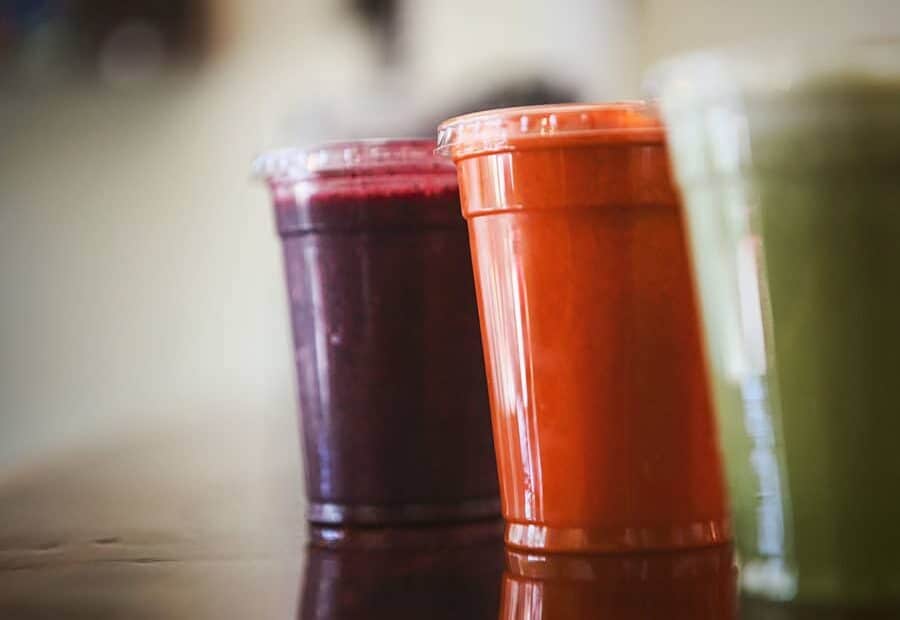The latest craze seems to be a “juice cleanse” or “detox diet.” We’ll admit, we like the sound of:
- Detoxifying your body
- Losing weight
- Performing a reboot and
- Improving your health and wellness
But is there evidence to support these and other claims of a “cleanse” or “detox diet?”
Let’s start with the first bullet point: detoxifying your body. In other words, ridding your body of waste and toxins. Yes, we are exposed to certain environmental (i.e. pollution, cigarette smoke) and endogenous (i.e. as a result of stress, illness/infection, lack of sleep) toxins. And yes, we know that it would be a bad thing to have…well…ANY nutrient or substance to build up to toxic levels in the body. But the wonderful news is that our immune systems and our organs (especially the liver, kidneys, and GI tracts) are constantly working to rid our bodies of waste and excess nutrients. And when we consume antioxidants from fruits, vegetables, nuts, seeds, beans, spices, herbs, salmon, whole grains, and more, we are providing our bodies with the nutrients they need to protect our cells against the harmful effects of environmental and endogenous toxins.
Next, as far as weight loss and “rebooting your system” go, the idea that a cleanse is going to have any sort of lasting health effects is simply a marketing myth. While some individuals may lose weight on a cleanse, most are going to feel hungry more often throughout the day. Cleanses normally don’t last long enough (nor should they, we might add) for individuals to see any significant weight changes.
Lastly, where you might be improving your health and wellness is in consuming fiber and nutrients if you are blending whole fruits and vegetables to make smoothies. Typically store-bought fruit and vegetable juices contain little, if any, fiber. In addition, fruit juice typically contains a lot more sugar than whole fruit. Compare consuming the juice from an apple or orange with eating a whole apple or orange. It would take a lot more than one piece of fruit to make a glass of the juice you would drink on this “detox diet.” The juice would contain natural sugars and some nutrients, but you’d be missing out on the fiber (which helps to promote satiety and plays an important role in the body’s naturally occurring detoxification process!). A diet consisting solely of fruit and vegetable juice would also be lacking in protein, which is just one of the reasons this diet is typically short-lived.
Our suggestions:
- Drink plenty of water
- Eat whole fruits and vegetables
- Consume prebiotics (whole grains, bananas, asparagus, onions, garlic, and legumes, as examples) and probiotics (kefir, kombucha, yogurt, miso, sauerkraut, and probiotic supplements, as examples)
- Work up a sweat…regularly!
While detoxification is an important concept, it is constantly naturally occurring in our bodies. We do not need to go on a juice cleanse in order for our bodies to rid themselves of waste. We suspect that you’ll agree that this is great news!
Kristi and Erin
Your 901 Nutrition dietitians

